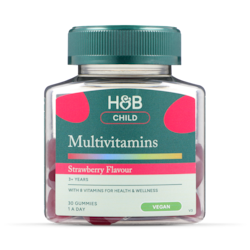15% off £20
Vitamin B Complexes
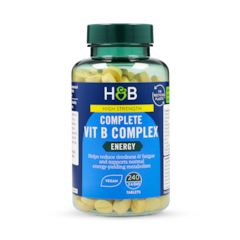
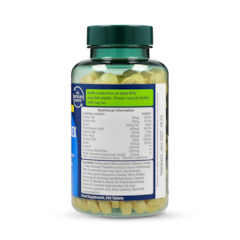
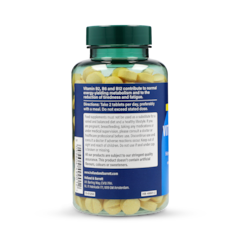
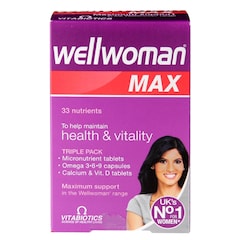
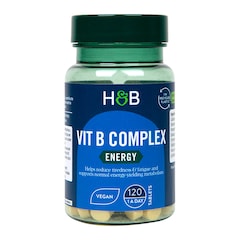
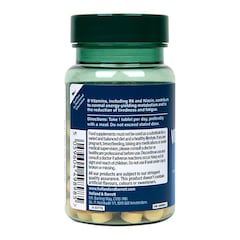
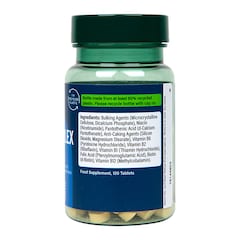
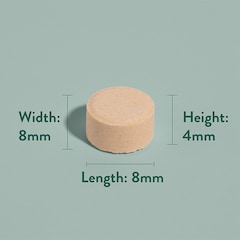
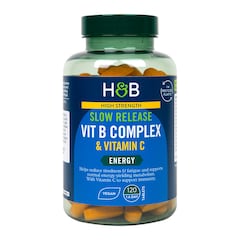
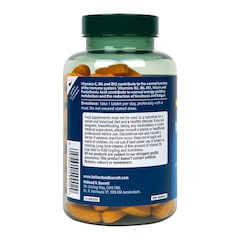
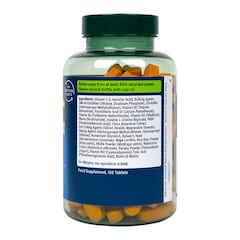
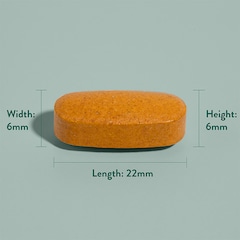
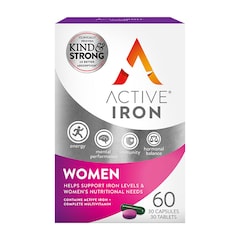
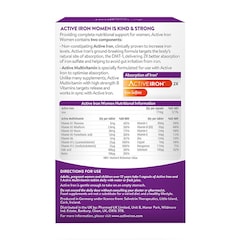
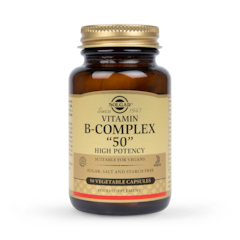

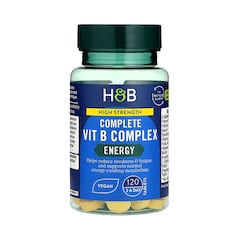
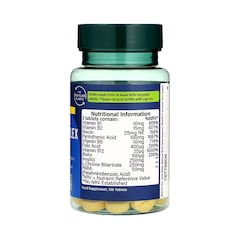
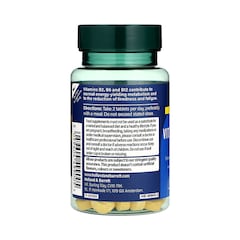
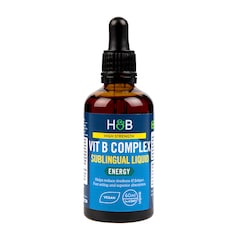
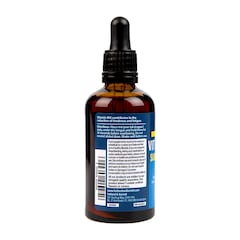
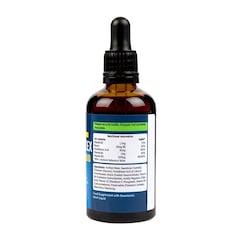
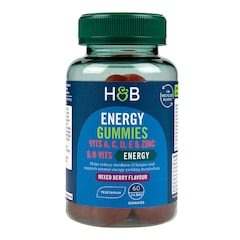
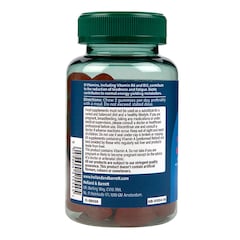
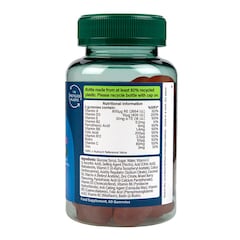
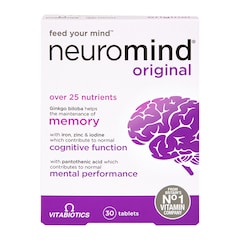
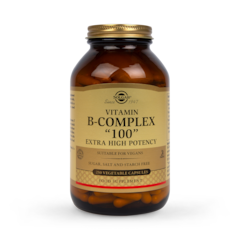
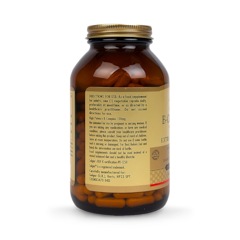
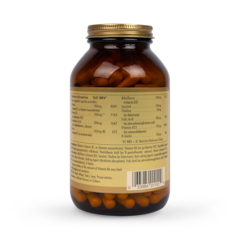
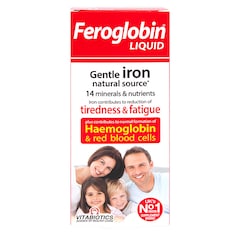
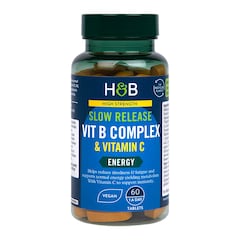
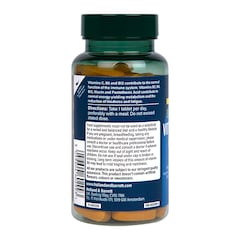
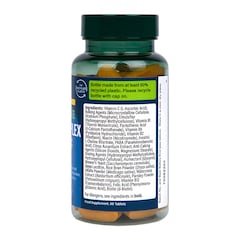
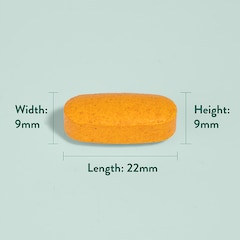
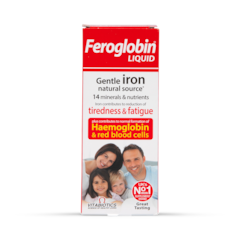
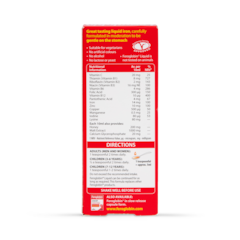
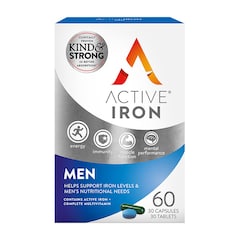
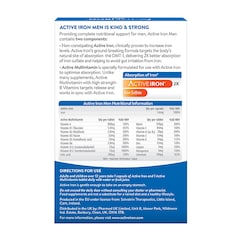
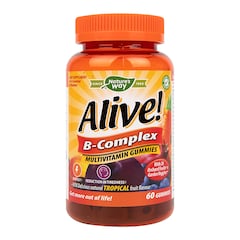
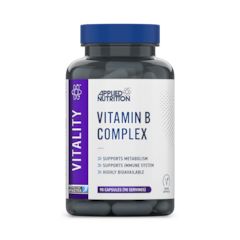
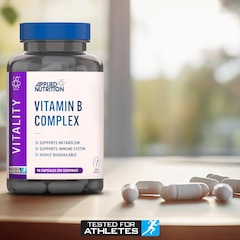
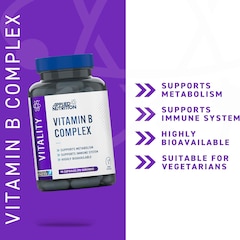
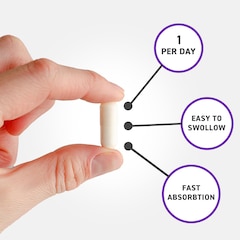
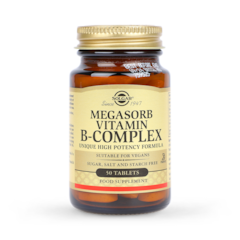
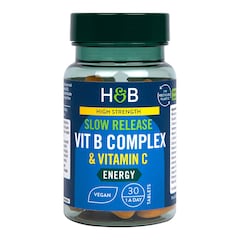
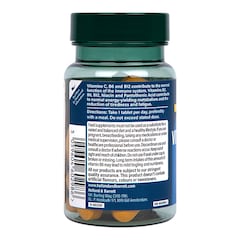
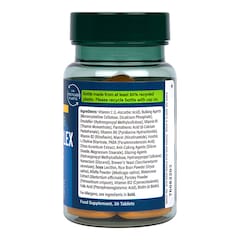
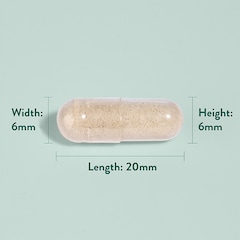
Shop Vitamin B Complexes at Holland & Barrett
Most Vitamin B complexes consist of eight B vitamins. These are:
- B1 (thiamine)
- B-2 (riboflavin)
- B-3 (niacin)
- B-5 (pantothenic acid)
- B-6 (pyridoxine)
- B-7 (biotin)
- B-9 (folic acid)
- B-12 (cobalamin)
All of these vitamins play key roles in how your body functions. B vitamins are generally important for great health and well-being. Most of them contribute to normal energy-yielding metabolism.
The importance of vitamin B complex
Vitamin B12 contributes to the maintenance of normal red blood cells, Vitamin B6 and B12 contribute to normal red blood cell formation. Folate, niacin, pantothenic acid, riboflavin, vitamin B6, vitamin B12 contribute to the reduction of tiredness and fatigue and riboflavin support the maintenance of normal vision.
Thiamine contributes to the normal function of the heart. B vitamins are also important for women who are pregnant or breastfeeding. Women who are pregnant as well as older adults need higher amounts of B vitamins than other adults. There are also some underlying health conditions that can prevent your body from properly absorbing vitamin B, such as coeliac disease or alcohol dependence.
Signs you are not getting enough vitamin B
There are some signs and symptoms that could suggest you are not getting enough vitamin B. These include skin rashes, cracks around your mouth, scaly skin on your lips, a swollen tongue, fatigue, weakness, anaemia, confusion, nausea, and stomach cramps. These symptoms can be caused by other conditions as well, so always ask your doctor if you experience these symptoms.
If you do need to consume more vitamin B, you can get it through supplements, and also through a balanced diet that includes a variety of milk, cheese, eggs, fish, dark green vegetables, avocados, potatoes, whole grains, nuts, seeds, yeast, and some fruits.
Vitamin B12
Vitamin B12 is involved in helping your body to make normal red blood cells and to keep your nervous system working well. It is also important for contributing to normal energy-yielding metabolism
Adults through to the age of 65 or so need about 1.5 micrograms a day of B12. You can get that amount reasonably easily from fish, milk, cheese, eggs, meat, and some fortified cereals. That does mean that vegetarians and vegans may sometimes struggle to get the amount of B12 they need from food alone. In which case, a supplement containing vitamin B12 may be of help.
More tips for reducing tiredness
Some people take vitamin B complex to help reduce fatigue or tiredness. Such supplements are best used to complement a healthy lifestyle, to the extent that you are able. Regular exercise, for example, is key. That only needs to comprise around 30 minutes of exercise a day, Monday through to Friday. A walk to the shop or to work would count as part of that.
It can also be helpful to eat smaller meals or snacks every three to four hours, instead of eating a huge lunch or dinner, and less during the day. Excess weight can put strain on your heart, which can make you tired. That means that eating a healthy diet, along with that exercise, can really go a long way to helping your overall wellbeing.
It also goes without saying that sleeping well is important. And while that is sometimes easier said than done, there are a few things you can do that go towards that, such as going to bed and getting up in the morning at the same time every day. It is also important to relax, away from screens and devices, before you go to bed or go to sleep.
Finally, if you can lower your caffeine or alcohol consumption, and drink lots more water, that can also be very useful in helping to reduce tiredness.
Recommended vitamin B products
We provide vitamin B complex in a range of combinations and quantities. For example, you can get Holland & Barrett Complete B Vitamin B Complex 250 Caplets with vitamins that support normal energy-yielding metabolism, and to help reduce tiredness. Take two caplets a day, ideally with meals. Do not exceed the stated dose.
You can also get Holland & Barrett Vitamin B Complex plus Vitamin C Timed Release 250 Caplets. The extra vitamin C in this product is for support of the normal functioning of your immune system. In this case, one caplet daily is enough, and should also be taken with a meal. Do not exceed the stated dose.
Shop Vitamin B Complexes at Holland & Barrett
Most Vitamin B complexes consist of eight B vitamins. These are:
- B1 (thiamine)
- B-2 (riboflavin)
- B-3 (niacin)
- B-5 (pantothenic acid)
- B-6 (pyridoxine)
- B-7 (biotin)
- B-9 (folic acid)
- B-12 (cobalamin)
All of these vitamins play key roles in how your body functions. B vitamins are generally important for great health and well-being. Most of them contribute to normal energy-yielding metabolism.
The importance of vitamin B complex
Vitamin B12 contributes to the maintenance of normal red blood cells, Vitamin B6 and B12 contribute to normal red blood cell formation. Folate, niacin, pantothenic acid, riboflavin, vitamin B6, vitamin B12 contribute to the reduction of tiredness and fatigue and riboflavin support the maintenance of normal vision.
Thiamine contributes to the normal function of the heart. B vitamins are also important for women who are pregnant or breastfeeding. Women who are pregnant as well as older adults need higher amounts of B vitamins than other adults. There are also some underlying health conditions that can prevent your body from properly absorbing vitamin B, such as coeliac disease or alcohol dependence.
Signs you are not getting enough vitamin B
There are some signs and symptoms that could suggest you are not getting enough vitamin B. These include skin rashes, cracks around your mouth, scaly skin on your lips, a swollen tongue, fatigue, weakness, anaemia, confusion, nausea, and stomach cramps. These symptoms can be caused by other conditions as well, so always ask your doctor if you experience these symptoms.
If you do need to consume more vitamin B, you can get it through supplements, and also through a balanced diet that includes a variety of milk, cheese, eggs, fish, dark green vegetables, avocados, potatoes, whole grains, nuts, seeds, yeast, and some fruits.
Vitamin B12
Vitamin B12 is involved in helping your body to make normal red blood cells and to keep your nervous system working well. It is also important for contributing to normal energy-yielding metabolism
Adults through to the age of 65 or so need about 1.5 micrograms a day of B12. You can get that amount reasonably easily from fish, milk, cheese, eggs, meat, and some fortified cereals. That does mean that vegetarians and vegans may sometimes struggle to get the amount of B12 they need from food alone. In which case, a supplement containing vitamin B12 may be of help.
More tips for reducing tiredness
Some people take vitamin B complex to help reduce fatigue or tiredness. Such supplements are best used to complement a healthy lifestyle, to the extent that you are able. Regular exercise, for example, is key. That only needs to comprise around 30 minutes of exercise a day, Monday through to Friday. A walk to the shop or to work would count as part of that.
It can also be helpful to eat smaller meals or snacks every three to four hours, instead of eating a huge lunch or dinner, and less during the day. Excess weight can put strain on your heart, which can make you tired. That means that eating a healthy diet, along with that exercise, can really go a long way to helping your overall wellbeing.
It also goes without saying that sleeping well is important. And while that is sometimes easier said than done, there are a few things you can do that go towards that, such as going to bed and getting up in the morning at the same time every day. It is also important to relax, away from screens and devices, before you go to bed or go to sleep.
Finally, if you can lower your caffeine or alcohol consumption, and drink lots more water, that can also be very useful in helping to reduce tiredness.
Recommended vitamin B products
We provide vitamin B complex in a range of combinations and quantities. For example, you can get Holland & Barrett Complete B Vitamin B Complex 250 Caplets with vitamins that support normal energy-yielding metabolism, and to help reduce tiredness. Take two caplets a day, ideally with meals. Do not exceed the stated dose.
You can also get Holland & Barrett Vitamin B Complex plus Vitamin C Timed Release 250 Caplets. The extra vitamin C in this product is for support of the normal functioning of your immune system. In this case, one caplet daily is enough, and should also be taken with a meal. Do not exceed the stated dose.

















